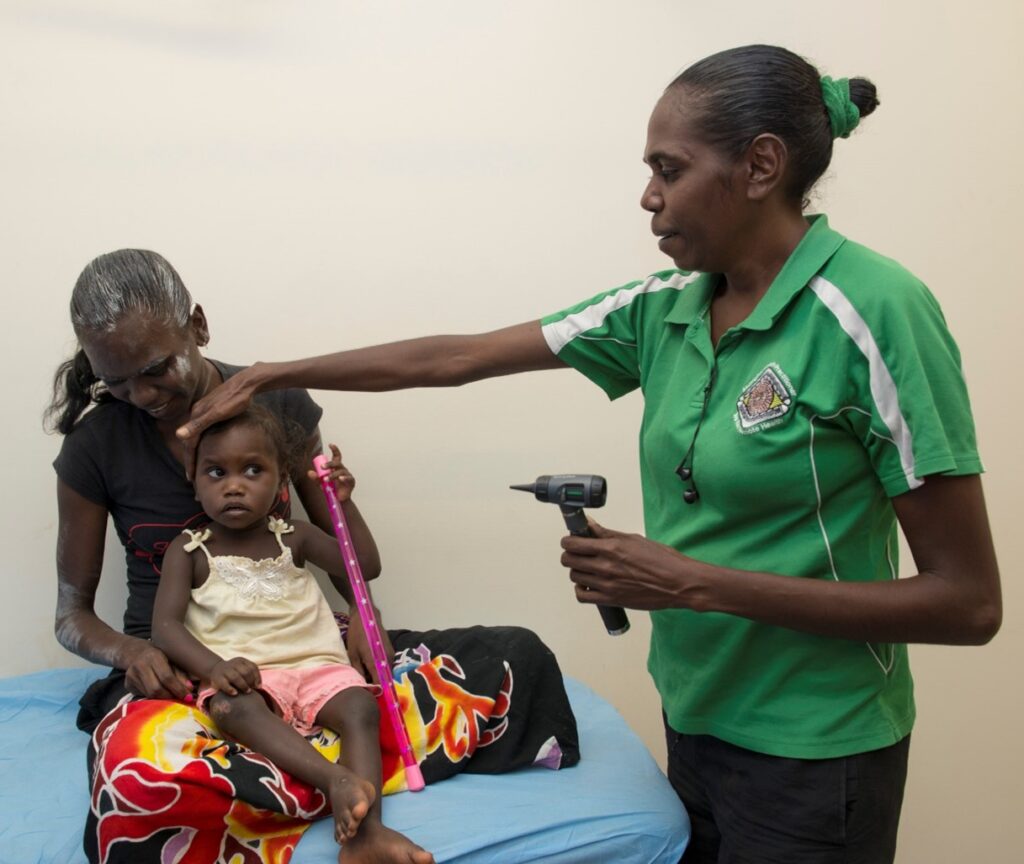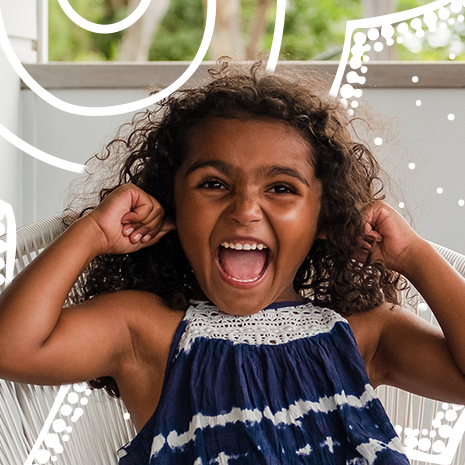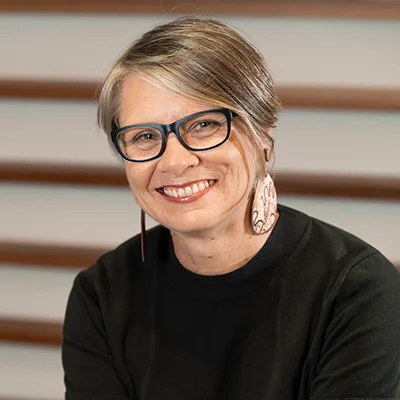Developing recommendations for primary health Ear Health and Hearing Checks for young Aboriginal and Torres Strait Islander children
Problem
Middle ear infection (otitis media) in young Aboriginal and Torres Strait Islander children is common, starts early in life, tends to be persistent rather than short term, and is often asymptomatic. If not detected and well-managed, the condition will affect children’s development and life trajectories. Ear health and hearing checks carried out by primary health practitioners are key to early detection yet are rarely carried out routinely. Further, the components of these checks vary significantly.
Aim
To develop evidence- and consensus-based, feasible recommendations for routine primary health Ear Health and Hearing Checks for Aboriginal and Torres Strait Islander children aged 5 years and younger.
Team
Dr Mary Belfrage, Ms Sam Harkus, Dr Michelle Kennedy (Wiradjuri), Prof Kelvin Kong (Worimi), Dr Carmen Kung, Ms Vivienne Marnane, Dr Isabel O’Keeffe, Dr Neil Orr, Dr John Skinner, Ms Meagan Ward.
Our approach
The project is led by an inter-disciplinary, inter-agency team of Aboriginal and non-Indigenous researchers. A Working Group provide technical and cultural oversight, membership of which prioritises Aboriginal and Torres Strait Islander and primary health clinicians.
A review of peer-reviewed publications and grey literature is undertaken to seek information on activities currently included in ear health and hearing checks in primary health settings, and the timing of these activities for young children at increased risk of otitis media. Using this information, draft recommendations are developed and presented for feedback to an expert panel of 80 Aboriginal and Torres Strait Islander and non-Indigenous ‘key experts’ who work in primary health and hearing health settings.
Based on the experts’ feedback, the recommendations will be refined and re-presented until consensus is reached. The recommendations will be finalised in consultation with the Working Group. Following this, small focus group discussions will be undertaken with primary health practitioners to explore considerations for implementation.
The final recommendations will be relevant to primary health practitioners who provide care to Aboriginal and Torres Strait Islander children aged 5 years and younger.
Status
The project began in January 2021. The recommendations were finalised in June 2022. Two papers (the first outlining the final recommendations and the second describing the methodology used) are being prepared for peer-review and publication.
We would like to acknowledge and thank the following people and organisations who played important roles in conceptualising, shaping and/or supporting the project including the National Aboriginal Community Controlled Health Organisation, and Mr Kim Terrell and Ms Michele Clapin from Hearing Australia.
We would also like to express our gratitude to the members of the Ear Health and Hearing Check Working Group, for their commitment to, guidance of, and participation in the recommendations development process: Ms Maricar Alcedo, Ms Amarjit Anand, Dr Chris Brennan-Jones, Mr Karl Briscoe (Kuku Yalanji), Mr Matthew Brown, Dr Hasantha Gunasekera, Ms Gerry Hannan, Dr Sarah Hayton, Dr Rob James, Dr Kirsty Jennings (Biripi), Prof Amanda Leach, Dr Karen Myors, Prof Peter O’Mara (Wiradjuri), Ms Pamela Paltridge, Ms Leanne Quirino, Mr Trumaine Rankmore (Wiradjuri, Gomeroi and Ngemba), Ms Sowmya Rao, Dr Simone Raye (Bardi Jabbir Jabbir), Ms Melanie Stone, Ms Valerie Swift (Menang Gnudju), Ms Nicole Turner (Kamilaroi), Ms Claudette (Sissy) Tyson (Kuku Yalanji), and Dr Marianne Wood. Additional thanks to Working Group members Prof Amanda Leach and Prof Hasantha Gunasekera for guidance on assessing certainty of evidence.
Further, we sincerely thank all expert panel members who took part in the Delphi consensus process, which required a considerable time commitment, and the organisations that assisted us in identifying expert representatives.



